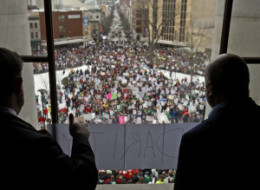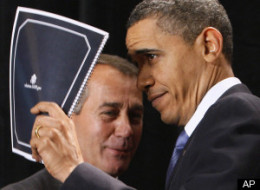
Before Walker won Wisconsin had no deficit. Walker won because of Tea-party support and promising 250,000 new jobs to Wisconsin in his first term. No jobs yet instead Mr. Walker got Wisconsin in a deficit by things like passing $117 million in tax breaks for businesses and then claimed an emergency that requires sacrifices from unions employees. Walker intentions are to change Wisconsin’
Read the Article at HuffingtonPost


